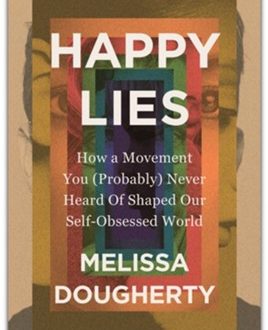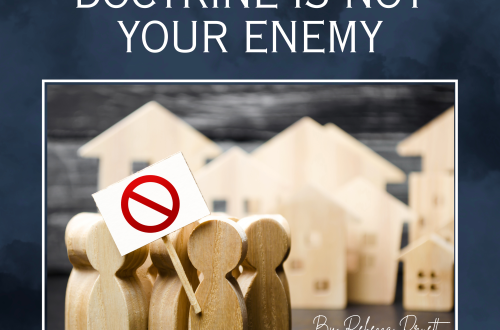
False Scripts: Image, Narratives, & Perception in Spiritually Abusive Settings

I wrote a book when I was 20 years old, at the request of my boss and pastor.
He came to me with the suggestion that a book for brats written by a “former brat” would be a really great contribution to the Holiness Movement.
I set straight to work. I was so determined to please him that literally 2 weeks later I had finished this task.
It sold on FGBI promotional tables around the country for $5 a copy and the money went to the school.
I’m so ashamed of this book now.
To be quite honest, I don’t have the files and I can’t recall specifically what its contents consist of, but if I could guess, I’d say it likely contains a lot of passive-aggressive snark and veiled criticism of young people, who were in fact, my peers.
I don’t think more than 50 copies ever existed, but if you read this book and it influenced you negatively in any capacity, I am so sorry. My heart breaks to think how I have misrepresented Christ in the past, and I humbly ask your forgiveness. If you have a copy, I’d be so grateful if you’d spare another person from its influence and throw it away.
It’s strange, the things you unpack when you are disentangling and examining your beliefs and your core understandings, to see what they are made of.
The whole premise of this book flowed directly from an identity that he assigned to me.
The “brat.”
That was his thing.
I was the brat that he turned around.
Where did this idea even come from?
I had to think back to figure out how it even originated. I knew it started around the time he asked me to stay on as faculty. I went to his office for my “conduct and adaptability” meeting. While I was in there, he painted a bleak picture.
I was a brat. I wasn’t likely to find a place in the ministry. I probably didn’t have a legitimate future. Somehow, he made me feel like no one saw any value in me. Like no one believed in me.
It didn’t take much for me to feel the full weight of these assessments.
They utterly crushed me.
But almost immediately, he turned it around.
Once I was inwardly despairing and on the verge of tears—solidly convinced that I was worthless:
He turned it all around.
But I believe in you.
A few days later he wound up asking me to stay.
The next conversation in his office was very similar to the last one.
He made sure to depict my unworthiness first.
Then he followed it with heroism.
He was willing to take a risk on me.
He would make a way for me to become something in the ministry.
He was the one that leveled the wound.
But then he was the one who swooped in like the hero.
It’s so odd to reflect on this for so many reasons—(he fired the couple who was already helping me, literally for helping me) but mostly because his assessment wasn’t really accurate.
I do not wish to imply that I was a perfect human being by any stretch of the imagination. I assure you, I was not. I am like anyone, with faults and quirks and sundry imperfections. But I did have a solid track record academically. I was a straight A student and a high-achiever. I made honors consistently. I was a meticulous rule follower, did my duties, was respectful to my superiors, and obeyed without hesitation. I got along with everyone. In every sense of the word, I was, what a general consensus would have considered a “good kid.”
Was I really a brat?
I asked my mother. She had a front row seat and if I could trust anyone to give me the cold hard truth about this, it’d certainly be her. She’s never minced words with me.
“No more than any other teenager.”
We had a great discussion about it.
It’s true—I hit some bumpy terrain in my teenage years, while trying to navigate a sexual abuse situation on my own. She could tell you about a visceral argument when I lost it one day in the midst of that. It certainly wasn’t my finest hour. I wrestled with depression and deep confusion for awhile, much of it rooted in the staggering degree of spiritual abuse I experienced in my home church. And yes, for a brief time, I turned to self-harm as a way to cope before I had learned other coping mechanisms.
But did that make me the all-encompassing failure he made me feel like I was at the end of that year?
The brat that nobody wanted, nobody believed in, nobody would do anything with?
Nobody—but him?
I had just turned 19. It’s astonishing now, when I realize now what a lie that was.
I had my entire life ahead of me and I had so many people that loved me and cared about me.
But I believed him.
Prior to talking to him toward the end of the year, I was feeling optimistic about what lay ahead. I was not discouraged about my future at all. I had a ministry opportunity—a church had invited me to come and help out in their children’s ministries. I still had academic plans I intended to pursue. The situation at home had been resolved. The man had gone to prison and was no longer a concern. I was attending a new church. The pastor there and his family had gone above and beyond to take care of me my senior year. The pastor’s wife sent me letters and care packages that whole year, and made me feel so loved.
But what he said made me feel like my options were non-options. He made it seem like I really had no where to go. No where to turn but to him.
After talking with him, I was solidly convinced:
No one believes in me and no one cares about me, except him.
That was how I ended up working there.
And over the years he reinforced this—deepening it actually, over and over.
That first summer was very disorienting and heavy.
For the first few days he simply kept me with him everywhere he went. He took me to several places on campus. His basement/garage. Empty faculty houses. The front hallway guestrooms. He didn’t have me working at all. He just kept me with him while he appeared busy in these locations. I realized pretty quickly during this, that I was not permitted to leave his sight. It was almost like I was under a form of bizarre probation. It soon became clear that I had to ask permission to do anything. If I needed to use the bathroom or get a drink, even if what I needed was within feet of me, he rebuked me if I did not ask first. I’ll never forget how suffocating that felt.
When it was lunch time I tried to go to my room—hoping for a few moments of privacy to recharge, but I wasn’t allowed to do that either. I was repeatedly disciplined in the beginning for trying to spend any time alone. If I advocated for this small snippet of time for myself just to recharge and regroup, it was denied and I was told I was being rebellious.
It was humiliating and draining. It made me feel small, degraded, and caged. I felt like I was on a leash—I even asked him, “Why are you trying to control me?“
He insisted that he wasn’t controlling me—I was being a brat.
This was where the “brat” narrative came from.
I desired basic human dignity—healthy boundaries—but this was not only unacceptable, it was considered rebellious.
“People coming to your ministry must be trained or retrained to suit your needs… Anyone who refuses to be trained or re-trained will always be a source of frustration to your work.”
Thomas Peretic, Lessons in Loyalty, Ls.9
Not long after this, he assigned me and two of his daughters to clean up the remains of a demolished faculty trailer—by hand—in the sweltering summer heat. While the three of us young girls hauled debris, he spent the day in his air-conditioned office playing Rook on his computer. By this point, it was crystal clear to me that I wasn’t allowed to step away without explicit permission, so I didn’t dare to take a break.
Around 4 o’clock, he came out and told one of his daughters she could go.
I was confused that we hadn’t all been dismissed, but she left. The other daughter and I knew that meant we were to keep working. Then around 5 or 6, he gave his second daughter permission to leave too.
Still, nothing for me.
This was certainly frustrating and I couldn’t figure out why he would do this, but he hadn’t granted me permission to leave, so I knew I couldn’t leave. If I stopped and he had not said I could stop, he’d rebuke me.
The sun set.
I kept going.
I saw him appear in his window several times, watching me from the comfort of his home.
At some point it dawned on me that he was waiting me out. I couldn’t help but think that maybe he wanted me to quit so he could rebuke me. The thought frustrated me and I determined that I would absolutely not give him a reason to rebuke me so I kept going.
I can’t remember exactly what time it was when he finally came out. It had been dark for a couple of hours, so I’d say at the very least, it was 10PM when permission to leave was granted.
I went to my room, exhausted—not only physically, but mentally. I was confused. I was annoyed. I was bothered by this. This was one of so many things that just didn’t seem right. I thought about calling my mom and asking her to come and get me and take me home but it was too late to do it.
The next day, he called me in his office and my suspicions were confirmed.
He admitted that he had been waiting me out—tempting me to quit.
-Thomas Peretic, Lessons in Loyalty, Ls. 6
“People do not become loyal on their own… They must be taught and trained to be loyal.”
At that moment I was irritated and absolutely done. I wasn’t going to spend another minute working there. But then he told me how impressed he was that I stayed. He lavished me with praise for my obedience and loyalty—he painted this picture that he was like a father to me, molding my character—breaking the “brat” because he cared about me.
It was confusing and disorienting and it completely disarmed me.
As a 19-year-old girl who had been bullied and abused prolifically by spiritual leaders from childhood on, the praise of a pastor and a father-figure went straight to broken places in my soul. I craved that affirmation. When he beamed with pride across his desk, I was willing to dismiss whatever felt cruel moments before. That tiny morsel of affirmation was enough to make me postpone calling my mother.
Over and over, we’d cycle through similar processes.
He pressured, I “resisted” (as described above), he crushed, I broke, he praised, I was pacified. Often, I even felt indebted to him—grateful he “cared” enough to ‘discipline’ me.
I stood up for myself in the beginning.
There were times he would frame me as rebellious, undedicated, and uncorrectable, among other things.
None of these things were true and I firmly disagreed with these assessments. I thought they were devastating misunderstandings. I thought if I addressed him—that if I explained the truth about whatever random scenario spurred these labels—that’d he see where I was coming from and realize that they weren’t accurate portrayals of who I was.
He wouldn’t hear me though.
Anything—and I mean ANYTHING—from me that countered his narratives was “brat behavior”.
I have journal entries documenting the sheer confusion this caused for me.
I was trying so hard to understand—to see things from his perspective—to understand HOW it was even possible to draw the conclusions he did from the scenarios in question. I tried desperately to figure it out, because I wanted to do right—I wanted to live acceptably. I wanted to know precisely how and why my actions had been wrong so I could avoid being blindsided by extremely disorienting random rebuke for mistakes that weren’t even conceivable in my mind as mistakes.
Disloyalty = “A person who gives excuses and continually justifies himself. When a simple instruction turns into a prolonged debate, you are dealing with a possible ANTICHRIST!”
Thomas Peretic, Lessons in Loyalty, Ls. 9
I learned eventually that it was unacceptable to resist his narrative.
Resisting his narrative was “brat behavior.”
If he said “Becky, you are xyz” the truth didn’t matter.
The only acceptable response was “You are right. I am xyz.”
In order to move forward, I had to quit thinking.
Don’t try to figure out why he says you are this or that. You can’t figure it out. It doesn’t make sense.
Just accept it.
This is who you are, what you are.
This man taught that pleasing God directly correlated with pleasing him, and all the weight of eternal consequences and divine judgment and everything else was packed into his “correction.” There was a terror that if you didn’t align with him, that God would smite you.
When I became that person—the one who embraced his narratives—the one who was completely subdued and controllable in every sense of the word—then he gloried in my “transformation.”
I was a success story.
He’d brag to preachers and board members that came through about how he turned this unusable, brat girl into an obedient, dedicated, loyal worker who did whatever he asked and conquered the impossible to please him.
He’d remind me frequently that I was the “brat” that he transformed. That he made me into something valuable. That he invested in me when ‘no one else would.’ That he was there for me when ‘no one else was.’
And I believed him.
I’d sing his praises on cue.
And yes, there were cues.
I’d write glowing accolades for him.
“Everything I am that is good in anyway is because of him!”
“Speak favorably of your Senior Pastor and do it often!” “Genuinely admire your Pastor and praise him often. Publicly praise him!” “The loyal associate publicly says things that cause the church to love and respect the pastor in a greater way,” “When they see a quality in you that was learned from your leader, remind the admirer from whom it was learned!”
Thomas Peretic, Lessons in Loyalty, Ls. 10
I understood that my role, according to his teachings and the discipline that I received, was to make him look good. I understood that image, for this man, was everything. I understood that “safety” was transactional.
I helped paint a picture—of how wonderful and inspiring this man and his wife were—not because this was the legitimate case, but because I was scared and self-preserving. Scared that whoever the current person getting yelled at and belittled daily in front of everyone (and there was always at least one person in this boat)—whose efforts were never enough and whose daily life was made absolutely miserable—could be me. I could be next. For all the former faculty members who I watched suffer, who I didn’t reach out to or help, I’m so incredibly sorry. I’m so sorry. I ducked my head and said and did whatever I had to because I was clinging “safety”.
One year I landed in those crosshairs. To this day, I don’t know how it happened, but it did. When this happened, I could do nothing right. No matter how hard I worked and how much I gave of myself, no matter how much I tried to change and fix all the insane things he wanted me to change and fix about myself—it was never enough.
Three weeks before school that year he asked me to write a textbook for my class.
A textbook.
I politely asked, “A textbook? Wow…Why can’t we just buy a textbook?”
His reply was, “That’s not what I asked.”
I knew I had no choice but to write a textbook.
The problem was, it was August, and during the month of August, it’s all hands on deck to prepare the campus. Lots of cleaning, lots of grounds work, lots of improvement projects. I was expected to work on these things with everyone else, from sunrise to sunset. Then, I’d have to stay up late in the office to work on finances. Reconcile credit card statements, do payroll, pay bills, etc.
After several hours of that, I still had to find time to work on this textbook.
“Beware of people who become reluctant…”
Thomas Peretic, Lessons in Loyalty, Ls. 9
The only time left were the hours I would be sleeping, so I’d go home and stay up ALL NIGHT LONG working on this textbook. When morning came and my alarm went off, I’d set my computer down, fix my hair, brush my teeth, change my clothes and head straight back down to the office to join in another full day of cleaning. I did this day after day, night after night until the school year started, getting 2 or 3 hours of sleep a night AT MOST, sometimes skipping sleep altogether and continuing straight into work the next day.
By registration day, 3 weeks later, I had WRITTEN A TEXTBOOK, printed it, bound it, and had the stack sitting in my office ready for incoming students.
Even this accomplishment was not enough to come out from under the belittling treatment and the confusing, incessant, mind-boggling rebukes.
Disloyalty = “A Leader who will disappoint you when they are under pressure. Do not collapse or let people down when you are under pressure. Everyone has to deal with pressure. Remain focused and do your job! “Pressure” is not an acceptable excuse in the secular world, neither should it be in church. Do your job in spite of the pressure!”
Thomas Peretic, Lessons in Loyalty, Ls. 9
“Turning up the heat will always reveal the true character of people. Acts 28:3 is a word picture of what happens when a disloyal associate is subjected to the fiery test. ‘And when Paul had gathered a bundle of sticks, and laid them on the fire, there came a viper out of the heat, and fastened on his hand.’ ”
Thomas Peretic, Lessons in Loyalty, Ls. 6
The things I did that year to regain their approval were utter insanity.
When second semester hit, I realized their 10th anniversary at FGBI was coming up and, utterly desperate to prove my loyalty, and to escape his disfavor, I took on a massive project. A coffee table book to honor them. A student and I worked together to gather testimonies (most of them were mandatory). I poured my heart and soul into emailing people, designing, collecting pictures, editing, printing and binding this book to present it to them. I remember the day we were going to present it to them, crying in prayer, begging God, “Please, please let this be enough!”
Much to my relief it was.
That was the key that got me out of the crosshairs that year.
I finally, finally escaped their displeasure.
I had to bolster their image on a grand scale when they were treating me like absolute dirt to do it, but it worked and I was beyond grateful to experience a season of relief after that.
Looking back, I see how insidious and pervasive these false scripts truly were.
It wasn’t just narratives about me—and narratives about him. It was narratives about people all around me. Narratives about the faculty members who had left and students who had left.
During my time there, he gradually isolated me from the feedback of anyone who would challenge the narratives. (Romans 16:17; Proverbs 6:16-19; 3 John 9-10)
“It is imperative that you break off friendships with those who stand in opposition to your Pastor!”
Thomas Peretic, Lessons in Loyalty, Ls. 8
How many people left under a cloud of reproach because of his narratives? How much hurt did I contribute to by promoting his narratives? By making everyone believe everything was honky dory and wonderful at FGBI and that working for him was such a great blessing?
All I can say to those people is that I am so deeply sorry that I contributed to a narrative that discredited you. I can’t go back in time, but I’m doing my best to sound the alarm and prevent it from happening to others.
This tactic—breaking people down to rebuild them in your image—to bolster your image—is a hallmark of spiritual abuse. It’s psychological manipulation wrapped in religious language. At its core, it’s about control: dismantling people, weakening people, isolating them from anyone who can challenge the narrative, crushing their self-trust, and then posing as the only one who believes in them. It creates a dependency cycle that feels like redemption—heroism—but functions like enslavement.
Theologically, this is the inverse of what Christ does.
Jesus doesn’t tear people down to reconstruct them in the image of insecure men—He lovingly convicts, restores, and transforms us into His likeness. He reveals our sin, grants repentance, and gives us a new identity rooted in HIM—the absolute Way, the Truth, and the Life. (John 14:6) He doesn’t secure followers through mind games or emotional exhaustion but through the regenerating work of the Spirit and the freeing power of the Gospel.
Scripture condemns those who “lord over” others instead of leading with gentleness (1 Peter 5:2–3). Jesus said clearly, “The rulers of the Gentiles lord it over them… Not so with you. Whoever would be great among you must be your servant” (Matt. 20:25–26). When leaders claim divine authority but use it to isolate, dominate, or assign false labels, they are wolves in shepherd’s clothing.
This kind of manipulation thrives in darkness.
Ephesians 5:11 tells us, “Take no part in the unfruitful works of darkness, but instead expose them.”
False shepherds don’t want to be examined or questioned.
“Scrutiny always leads to mutiny.”
– Thomas Peretic, Lessons in Loyalty, Ls. 4
They teach that resistance is rebellion and that loyalty to them is equal to loyalty to God. This is spiritual hijacking, and it’s consequences are catastrophic. It’s not just unkind—it’s truly antichrist.
The true Gospel doesn’t work like this.
Christ doesn’t ask us to give up our minds.
He doesn’t distort our story or demand groveling loyalty to a man.
He calls us to Himself, and He gives back what men like this steal: clarity, dignity, and freedom.
If you’ve been branded, scripted, or redefined by a spiritual leader, please know:
This wasn’t godly. It wasn’t rooted in Christ. It was rooted in control.

If you’re a former student or faculty member of Free Gospel Bible Institute and need a safe place to process what you’ve experienced, I’d like to invite you to talk with myself or a trusted team member equipped to walk with you—whether you’re looking for pastoral counsel, help untangling what you experienced, or simply someone who understands, we’re here to help.
You’re not alone.
To share your experience or get connected, visit:
👉 BereanHoliness.com/fgbi
To reach me directly, feel free to use the form below:





One Comment
Darci Young
I attended FGBI for one year, and one was enough. Although I would have gone back and cried because I couldn’t return, I was told that God directly spoke to Sister Peretic and told her that FGBI was not the plan for me. I was so confused because I had already submitted my application. There was no question about me returning; the “see you in the fall” was being shared. I was an honor roll student, made the Dean’s List, and even got granted the opportunity to live in the cabins for exceptional students. No blemish on my record. Then I got the phone call saying that God directly told her it was not the plan for me. God never told me anything, but somehow, like Moses, He put it in her ear. This decision was made for me. At first, I was heartbroken, but I am so thankful now that I did not continue at that school. In a strange way, it was God’s plan. Two students were being welcomed back, even became faculty, after being caught doing sexual acts on the school grounds. Somehow, I was not. It didn’t make any sense to me.
I did not come from a holiness background, so I stuck out like a sore thumb. I had hair just below my shoulders and attended as a freshman with my boyfriend, who was a highly praised individual for his ministry in his teenage years, and everyone had high hopes for him. I will let his story be his own, but it also included being called into the office and questioned about whether I was hindering his ministry. All the while, I had never broken a rule, struggled academically, or in any way, shape, or form given a reason to be a subpar student. After I was filled in about God’s divine intervention on my part, they told Daniel he was welcome back. They even called our pastor to ask why he hadn’t arrived.
I tried out for the play cast. I am good with theater and don’t struggle with confidence. After my tryout, students from all grades came up to me, saying they were so impressed and that I definitely nailed it. Only to find out that I didn’t get the part because they were worried I wouldn’t be able to pray for others during altar services.
I was never called to ministry, and no one ever explained why I was never chosen. I just didn’t know the right people in my past. When the choir students were gone on a large trip, the Bruce family needed help cleaning out their garage and organizing their store. That left only a few of us girls, who were not in choir, stuck on campus.
Brother Peretic called me and told me I had to leave for ministry with the others, and I would be driving my car. If it had been any other scenario, I would have been on cloud nine—finally able to earn this favor and go on a special ministry. Unfortunately, there was a heavy snowstorm happening, and my car was many, many years old. I vividly remember there being at least 6 to 8 inches of snow already piling on my car, and it was still snowing. I was very nervous about driving in those hills, especially since it was not only my life I was putting in danger but also my classmates. I expressed that I was very thankful for the opportunity, but I did not feel comfortable driving in the snowstorm. He became very upset with me and said, “If you refuse to go to this ministry, I will never ask you to go on another one ever again.” I had no choice.
It took us a long time to get where we needed to, and there were several times when I was filled with anxiety about going off the road or having an accident. We had to stay overnight and work all day the next day. We had to move furniture around and mainly clean up garbage and recycling areas. Brother Bruce offered to buy us supper for our hard work, but we had a $10 limit at McDonald’s. I did not receive any offer of money for gas. As a college student banned from working on the side, this hit hard. I was left asking my dad to put money in my account for gas money that wasn’t planned.
Tragically, my uncle died while I was at college. I was very upset by this news, and my parents passed on the information that I needed to be back home for visitation and the funeral with the family. I contacted the Dean of Women at the time, and she said she would find out if I would be able to go or not. After discussion, they allowed me to drive the 11 hours back to attend his services. Unbeknownst to me, behind the scenes, the president of the school asked the Dean of Women to find out if I was lying or not. I had never given them a reason to believe I was a liar, deceitful, or anything but an outstanding, Christ-like person.
The Dean of Women asked my roommate, whom I was closest to in the cabin, if my uncle really died or if I was just lying to go back home to visit. She was absolutely appalled that such an accusation would even cross their minds. She filled me in immediately, and I remember that gut-sinking feeling when I realized that my family member had just died, and they thought I had orchestrated or even faked my uncle’s death. My father, bless his heart, who grew up strictly Catholic, drove me back to FGBI so I wouldn’t have to drive alone. He was welcome to stay on campus and attend a service and fly back out. He tried to convince me afterward that I should consider whether this is really somewhere I want to be. He felt completely uncomfortable about what was happening in the service, not just because he grew up Catholic, but because he could see the cult for himself—firsthand experience. He told me that I could make the decision for myself as an adult, but he was questioning whether I should be there or not.